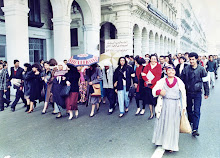Mr Bingu Wa Mutharika
President
Office of the President and Cabinet,
Capital Hill Circle,
Private Bag 301,
Lilongwe 3,
Malawi
10 aout 2011 Fax: +265 1 788 456
+265 1 789 273
Dear Mr President,
The [Syndicat national autonome de personnels de l’administration publique] writes to you to strongly protest against the violence used by your police forces in repression of the peaceful demonstrations of a front of civil society organisations, which included trade union organisations, on 20th and 21st July.
The nationwide demonstrations had been planned, within constitutional bounds, and duly announced for 20th July. Subsequently, your government tried to prevent them from taking place. On the morning of the day itself, 20th July, radio announcements were made that your government had obtained an injunction prohibiting the demonstrations. However, a court ruling vacated this injunction a couple of hours later, i.e. by midday. Notwithstanding this court ruling, the police used tear gas and even live ammunition to disperse protestors in Lilongwe, Blantyre and Mzuzu.
The people of Malawi merely wanted to protest against the quickly deteriorating situation of the economy of the country, and its impact on everyday life. As a result of the intransigence of the security forces, the situation escalated. Two days of riots in different cities throughout the country resulted from this, in which eventually 19 people were killed.
Civil society, including the trade unions, has been critical of a number of recent laws which limit the freedom of the press, restrict lawsuits against government agencies and officers, and limit civil liberties. They also wanted to protest against the quickly deteriorating economic conditions, characterised by crippling fuel and foreign exchange shortages. The workers of Malawi have been hit hard by the economic crisis. Shortage of foreign exchange means that companies cannot bring in raw materials and parts, which has resulted in massive job losses. Shortages cause basic goods to become unaffordable.
Furthermore, Section 46 of the Penal Code was amended, allowing the Minister of Information to ban publications which are 'deemed to be contrary to the public interest'. Similarly, the Civil Procedure Bill was also amended, as to deny supplicants the right to instant relief when their rights are under threat by a given government agency or officer, and to allow the police to search any house without a search warrant.
The current state of affairs, and your government's response to it, including the violent repression of the abovementioned protest actions, led to severe international criticism. Catherine Ashton, the High Representative of the European Union for Foreign Affairs and Security Policy, issued a statement which strongly condemned 'the use of force and live ammunition by Malawian authorities on 20th and 21st July and to prevent their own citizens from exercising the constitutional right to demonstrate peacefully, as well as the ban imposed on media reporting on the confrontations' and the 'violence targeted at certain individuals […] because of their political or social affiliations'. UK Foreign Secretary William Hague had previously announced that the Foreign Office had instructed Malawi's Acting High Commissioner to leave the country, after the unwarranted decision from your end to expel the British High Commissioner from Malawi. Subsequently, the UK International Development Secretary decided to halt all general budget support 'until progress has been made in economic management', which is particularly alarming as aid from all donors accounts for one-third of your government's budget, and the UK is one of the largest bilateral donors.
Despite the brutal police crackdown, protestors took their demands to the district commissioners, and called on your Presidency to address these demands by 19th August. Subsequently, a great number of local civil society leaders and labour leaders went into hiding, as they fear for their lives after having received threats.
This, Mr President, is not worthy of a country which adheres to the principles of democracy. Both the abovementioned legislative changes as well as the violent repression of legitimate and peaceful protest actions are unacceptable violations of international rights and standards. Confronted with such particularly harsh conditions as the ones currently hitting Malawi, citizens and civil society organisations should not face even tougher repression when standing up for their basic rights. The [Syndicat national autonome des personnels de l’administration publique] therefore strongly urges you to engage in a constructive dialogue with Malawi's civil society organisations, and to refrain from indiscriminate violence in the future.
Yours sincerely,
- Copy of your letter to the Malawian Minister of Labour (Fax: +265 1 773 805
- The Malawian embassy in Algeria
- The PSI (rights@world-psi.org).
MALAOUI RACHID
President

Aucun commentaire:
Enregistrer un commentaire